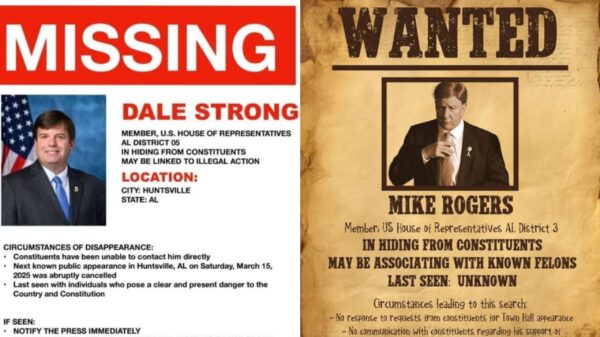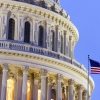By Brandon Moseley
Alabama Political Reporter
Congressman Spencer Bachus (R) from Vestavia released a statement following the House Financial Services Committee hearing on the recent JPMorgan Chase loss in speculative trading. Representative Bachus is the Chairman of the House Financial Services Committee.
Rep. Bachus said, “When America’s largest bank reveals it has suffered an unexpected loss of more than $2 billion, it understandably generates concern and raises questions not only about the bank’s risk management controls and corporate governance but also the action – or inaction as the case may be – of the regulators. While the size of the reported loss is a small fraction – just 1/1000th of JP Morgan’s total assets – this episode serves as a reminder that no institution – no matter how well managed – is immune from mistakes that are, to use Mr. Dimon’s words, ‘stupid,’ ‘sloppy’ and the result of ‘bad judgment.’”
Rep. Bachus said, “This should remind all of us about the importance of making sure it is the bank and its shareholders — not the taxpayers — who pay for such mistakes. Fortunately, these losses are not being borne by the taxpayers, but by JP Morgan. Since the losses were disclosed, the company has lost $23 billion in market capitalization and suffered reputational harm in the marketplace, and employees involved in the problematic trades have lost their jobs.”
Chairman Bachus said, “Just as JP Morgan should be (and is being) held accountable for its risk management failures, accountability must also be demanded of the Federal regulators who oversee the bank’s activities. Unfortunately, because the Dodd-Frank Act failed to consolidate and streamline the current convoluted and chaotic regulatory structure, as House Republicans proposed, achieving regulatory accountability is every bit as difficult now as it was during the height of the financial crisis.“
Congressman Bachus continued, “”How inefficient and fragmented is the current regulatory framework? Well, sitting before us today are five different regulators, all of whom have some supervisory responsibility over these trades and several of whom have examiners embedded at JP Morgan – but none of whom, apparently, was either aware of the bank’s hedging strategy or raised concerns about it.”
Chairman Bachus has been very critical of the vast expansion of the financial sector under the Administration of President Obama. The Dodd–Frank Wall Street Reform and Consumer Protection Act was passed in 2010 when the Democratic Party controlled the U.S. House of Representatives and Massachusetts Democrat Barney Frank was the Chairman of the House Financial Services Committee. The Dodd-Frank Act was supposed to give federal regulators enough control over lending that another boom and bust cycle like the 2008 Great Recession won’t ever happen again.
Critics, like Chairman Bachus, claim that the legislation just makes credit too hard to obtain, drowns banks in new paperwork and regulations, and expands the scope of the federal government into new areas of lending far beyond its banking and securities realm, while creating new bureaucracies that are not under the direct purview of the U.S. Congress.
Congressman Spencer Bachus is seeking his eleventh term in the U.S. Congress in the November 6th general election. His Democratic opponent is Leeds resident retired U.S. Air Force Colonel Penny Huggins Bailey.






















































